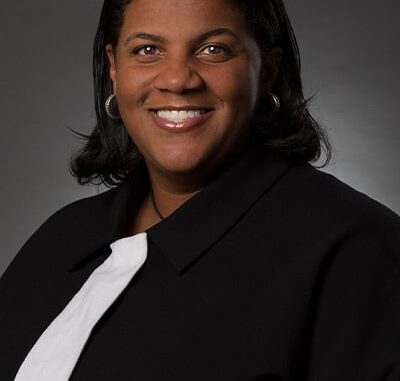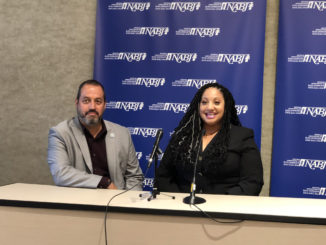
By Whitney Hughes
NABJ Monitor
On May 25, Ohio joined the wave of states to introduce or pass a law that would limit the discussion of race in K-12 classrooms.
“It strives to ensure that every Ohioan is treated equally under the law and that every individual enjoys the rights and privileges of non-discriminatory, objective representation of educational and historical facts,” Ohio Rep. Sarah Fowler Arthur, a sponsor, told her fellow legislators.
These laws are a part of Republican efforts to ban critical race theory (CRT) from being taught in schools. Critical race theory was developed by legal scholars as a way of explaining whether or not systems in America are contributing to the continuance of racism.
Ohio House Bill 327 would prohibit school districts from “teaching, advocating or promoting divisive concepts,” language that is reflected in many of the similar bills across the country.
Toledo Public Schools, a minority majority school district in Ohio, is developing an Afro-centric education program to better serve the student population, which is 40% Black. Experts say that the passing of HB 327 could potentially harm students.
Already, says Dr. Treva Jeffries, transformational leader of the department of equity, diversity and inclusion at Toledo schools, the state approved curriculum does not accurately reflect the diversity of the students in the school district.
“Talking about race and race issues that have created systemic racism, pillars of systemic racism and continue to impede success of marginalized individuals is just reality. It’s history and reality,” Jeffries said.
In addition to the 40% of students in Toledo Public Schools who are Black, over 20% are Hispanic or biracial. This ethnic makeup of the school district prompted Superintendent Dr. Romulus Durant to call for an Afro-centric education program.
“We’re moving heavily into that, where one, it’s not only the cosmetic makeup of the building, but at the same time the truth, the understanding of the cultural awareness of your history,” Durant said.
Dr. Hope Bland, director of equity and social justice at Toledo schools, who is helping to develop the Afro-centric program, said critical conversations on race best serve the student body and will continue to be had whether or not HB 327 is passed.
“We’re not letting it infringe on our ability to still have conversations around race.” Bland said. “We know we have to be strategic if they pass it.”
Toledo Public Schools has held multiple community events on race and social justice over the past six years. In addition to adopting a more inclusive Afro-centric curriculum, it is a goal to host events on equity and diversity annually to address problems affecting the community.
Bland and Jeffries say they will figure out a way to continue these conversations if HB 327 passes in a way that complies with the law.

With the progression of states proposing laws banning CRT at the elementary and secondary levels, some of Ohio’s university level diversity officers worry that there could soon be legislation applying to post secondary institutions. Many universities, including The Ohio State University, offer courses on critical race theory in the curriculum.
“That will be a blow to higher education, a blow to faculty and staff, a blow to our students, and a blow to just this country’s progress,” Dr. Jacqueline Meshelemiah, associate vice provost for diversity and inclusion at The Ohio State University, said. She believes that prohibiting critical race theory at universities could potentially decrease the number of minority faculty members and students.
Students and faculty could become less successful in higher education with restrictions to critical conversations around race and diversity, she said.
“How can any racially minoritized student be successful if they’re living, working, learning in hostile environments and they are unable to talk about or challenge those systems that continue to harm them?” Meshelemiah said.
Meshelemiah says she agrees with a statement from president of the National Association of Diversity Officers in Higher Education Paulette Granberry Russell, J.D. opposing the efforts to ban critical race theory in education as an attempt to “sanitize history.”
Toledo Public Schools hopes the Republican led effort to restrict conversations of race and current racism in America fails in Ohio.
“Just the mere act of trying to suppress voices to talk about race is a racist act in itself, and it’s just one more notch in the systemic racism that exists in our country,” Jeffries said.
The 23 states with proposed or passed laws on race in education are the following:
- Alabama
- Arizona
- Arkansas
- Idaho
- Iowa
- Kentucky
- Luisiana
- Maine
- Michigan
- Missouri
- New Hampshire
- North Carolina
- Ohio
- Oklahoma
- Pennsylvania
- Rhode Island
- South Carolina
- Tennessee
- Texas
- Utah
- Washington D.C.
- West Virginia
- Wisconsin
A bill has now been introduced to the U.S. Congress regarding this matter.




Be the first to comment